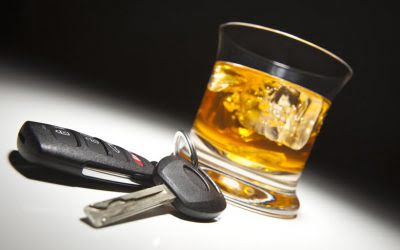You may be concerned that expressing your concerns will cause the other person to become enraged, defensive, lash out, or simply deny the fact that they have a problem. This article discusses how to deal with and help a binge drinker. Do you tend to limit your drinking during the week, only to overdo it at the weekends? We’ve got a few ideas to help you cut back and make the most out of your weekends. Remember that even though alcohol use is normalized in our culture, no amount of alcohol is good for you. The CDC recommends that if you don’t already drink, you shouldn’t start for any reason.
Americans Consume Weed More Regularly Than Alcohol, New Study Reports
- Consider avoiding people who pressure you as well as people who tend to binge drink.
- If you’re the type of person who likes to seek out novel sensations and situations, you might also be more willing to engage in risky drinking habits.
- However, to date there have been few intervention studies conducted to experimentally examine the effects of regular alcohol intake on weight gain or obesity in humans.
However, even a mild disorder can escalate and lead to serious problems, so early treatment is important. Coping tips can absolutely offer short-term solutions when you’re trying to cut back on alcohol. That said, permanently changing your relationship with alcohol may require a more in-depth approach. These changes can lead to tolerance, or a why can’t i control my drinking need to drink more in order to feel the same effects. They can also leave you more sensitive to alcohol’s effects and raise your risk of withdrawal symptoms.
Caregiver Stress and Burnout
- The systematic review by Bendsen et al. 3• suggests that this trend is less likely in experimental studies examining beer consumption exclusively.
- Whether you decide to set a hard limit or not, make a habit of following up every alcoholic beverage with a non-alcoholic one.
- It may take several efforts to start a genuine dialogue about your loved one’s drinking with them.
- It’s common for binge drinking to occur socially—for example, at a wedding reception, house party, or a night out.
Feeling at your best physically can boost resilience and emotional strength, equipping you to weather challenges that trigger the desire to drink. Letting others know about your choice to stop drinking may help motivate you to stick with your decision. Your Care Team will recommend a combination of prescribed medication, alcohol therapy, and community support to get you from where you are to where you want to be.

Free Healthbeat Signup
Individuals may engage in excessive drinking to conform to social norms or because they perceive it as a way to have fun, be more sociable, or gain social approval. Binge drinking is one of the most common stages of alcohol use disorder. In a survey conducted by the National Institute on Alcohol Abuse and Alcoholism (NIAAA), it was found that about 55% of adults in the United States have engaged in binge drinking at some point in their lives. Binge drinking refers to consuming a large amount of alcohol in a short period, resulting in a blood alcohol concentration (BAC) of 0.08% or higher. This is typically defined as consuming five or more alcoholic drinks for males and four or more drinks for females within about two hours according to the (NIAA). If you feel that you sometimes drink too much alcohol, or your drinking is causing problems, or if your family is concerned about your drinking, talk with your health care provider.
She notes that it can help to avoid your triggers as much as possible in early recovery, since triggers are often most intense when you first stop drinking. A positive distraction can help occupy your thoughts and energy, giving you something to focus on besides the urge to drink. “A typical craving might last for 3 to 5 minutes,” notes Christina Hanks, senior recovery coach and care team manager at Tempest. Internal triggerstypically involve memories, thoughts, emotions, or physical sensations that prompt the urge to drink.


You might binge drink in order to feel confident talking, flirting, or making jokes with strangers. When you feel isolated or lack direction and purpose, it’s common to turn to alcohol and other drugs to fill that void. For example, you might feel tempted to recline on your couch, drink beer, and watch television simply to kill the hours spent alone. Maybe you feel overconfident in your ability to drive while intoxicated, or you don’t think of the risks involved with physical stunts or going home with a stranger.
Genetic, psychological, social and environmental factors can impact how drinking alcohol affects your body and behavior. Theories suggest that for certain people drinking has a different and stronger impact that can lead to alcohol use disorder. Many people with alcohol use disorder hesitate to get treatment because they don’t recognize that they have a problem.
